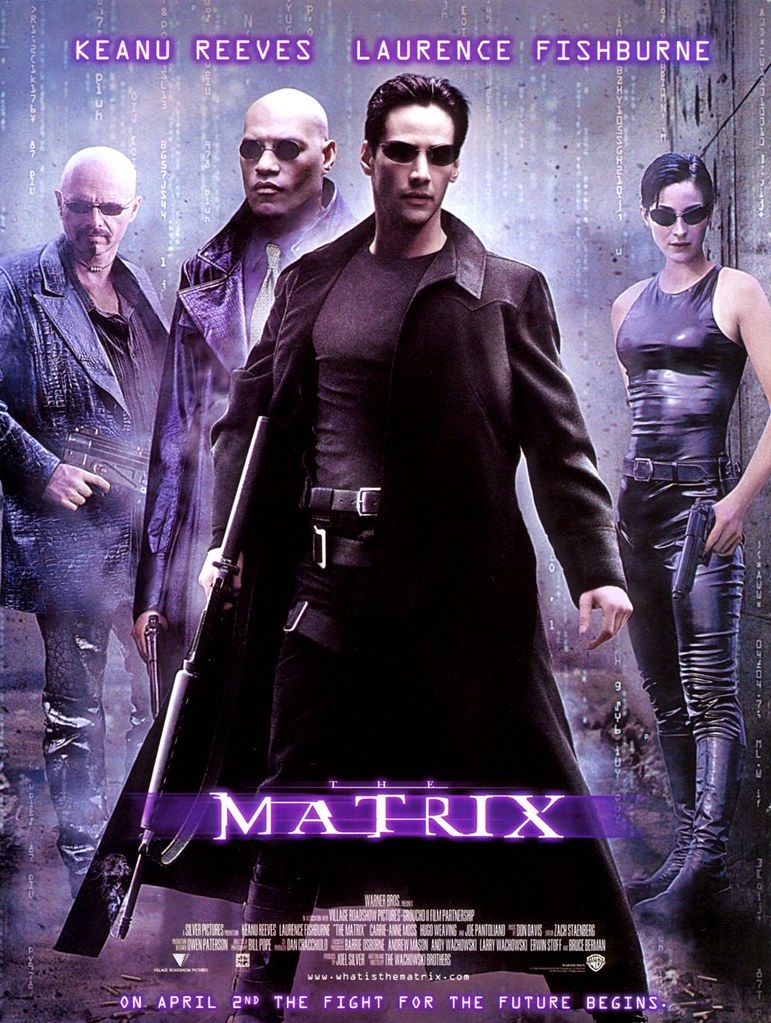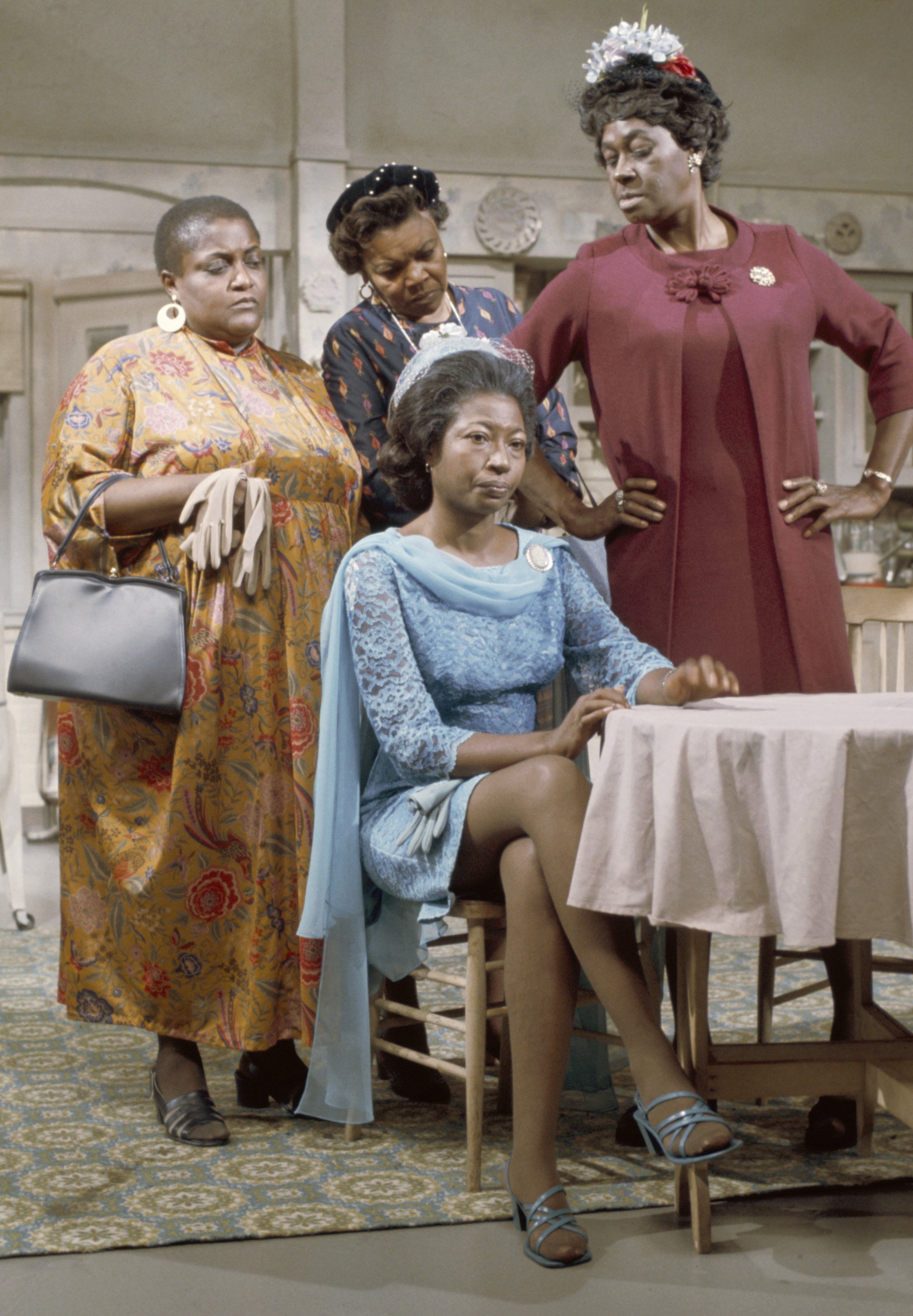
Alright, cinephiles and casual streamers alike, let’s talk movies. While Hollywood certainly churns out its fair share of blockbusters and rom-coms – and hey, no shade intended, we all love a good Marvel flick sometimes – there’s a whole world of compelling, urgent stories just waiting to be discovered beyond those familiar fences. We’re talking about foreign-language cinema, and trust us, it’s a goldmine.
Maybe you’re looking to flex your inner film buff, or perhaps you’re genuinely interested in the diverse narratives and unique cultures that other nations bring to the screen. Either way, diving into foreign films is an amazing way to sharpen your viewing habits and open yourself up to a broader spectrum of world cinema. It’s a reminder that incredible storytelling isn’t confined by borders, and sometimes, the most unforgettable experiences come from places you least expect.
Now, while Netflix isn’t exactly the Criterion Collection when it comes to foreign films, it still boasts a fairly dense lineup of cinematic masterpieces made outside America. So, if you’re ready to explore a vibrant tapestry of global tales, we’ve curated a list to get you started. This isn’t a definitive, ranked roster, but rather a hodgepodge meant to widen your cinematic appreciation. Just remember one crucial rule: make sure those subtitles are on, and prepare for a journey into the unexpected!

1. **The Lobster**Imagine a world where being single isn’t just a social faux pas, but a ticking clock towards a truly wild transformation. Released in 2015, “The Lobster” plunges us into an alternate future where single individuals are given a mere 45 days to find a romantic partner. Fail to couple up, and you face the ultimate consequence: animal conversion therapy, meaning you’re literally going to become an animal if you don’t get hitched. It’s a premise so absurd, you can’t help but be intrigued.
The film follows David, played by the ever-excellent Colin Farrell, who finds himself newly single after his wife leaves him for another man. As he navigates the bizarre courtship rituals of the hotel where much of this 45-day ultimatum unfolds, he eventually meets an unnamed woman, portrayed by Rachel Weisz, and attempts to forge a relationship with her. Their interactions, along with those of their fellow unlucky-in-love companions, are a masterclass in darkly comedic brilliance, full of both funny and devastating missteps.
“The Lobster” doesn’t pull any punches as a dark comedy. It explores themes of societal pressure, conformity, and the often-bizarre nature of human connection. We see an escape plan go awry, a pack of people trying to fight for change, and misshapen hierarchical politics simmering beneath the surface of a quiet revolution. It sounds like the setup for an epic, three-hour action-adventure with swords and magic, doesn’t it?
But here’s the twist: “The Lobster” has none of that. There’s no magic in the traditional sense. Or perhaps, the film suggests, human folly, the fragility of emotions, and friendship plain and simple could be considered magic. It’s a dark and twisted kind of magic, to be sure, one that’s ultimately hard to fully grasp, but undeniably powerful in its unique cinematic vision from director Yorgos Lanthimos, who also co-wrote the screenplay with Efthymis Filippou. This 1-hour and 58-minute film stars Colin Farrell, Rachel Weisz, and Jessica Barden.
Read more about: Beyond the Plate: 12 Staple Foods That Have Shaped Human History Since Ancient Times

2. **Roma**If you’re looking for a deeply personal and visually stunning cinematic experience, look no further than “Roma.” This acclaimed film by “Gravity” director Alfonso Cuarón is a truly special work, touching on profound memories of his own childhood. It offers an intimate glimpse into the life of Cleo, portrayed with quiet power by Yalitza Aparicio, a servant to a well-off family in Mexico City during the 1970s. Cleo is far more than just a maid; she’s an integral part of the family, often accompanying them on trips and loving the children with a profound, motherly affection.
Cleo is often silent, yet she is remarkably earnest, always striving to do a good job for the family she serves. She embodies a figure of love to them, but there’s also an ethereal quality to her presence, almost like an apparition. She is always there when needed, yet she has also learned the art of disappearing completely when family foibles arise, ensuring she stays out of the way. This duality is central to her character and the film’s nuanced exploration of class and connection.
When a pregnancy disrupts Cleo’s life, everything she knows nearly falls apart, and she becomes increasingly worried about what the future holds. “Roma” spends roughly a year following Cleo as a mother-to-be, all while she endeavors to support a family whose bliss is fraying at the edges. Simultaneously, she navigates a rapidly shifting political landscape in Mexico, adding layers of societal upheaval to her personal struggles.
This masterpiece was up for 10 Oscars, and if you’re reading this post-February 25th, chances are it’s already brought home a few. Its stunning black-and-white cinematography and immersive storytelling make it an unforgettable watch. Written and directed by Alfonso Cuarón, the 2-hour and 15-minute film features Yalitza Aparicio, Marina de Tavira, and Diego Cortina Autrey.
Read more about: Beyond the Stargazer’s Lens: 8 Cosmic Discoveries That Happened by Pure Chance!
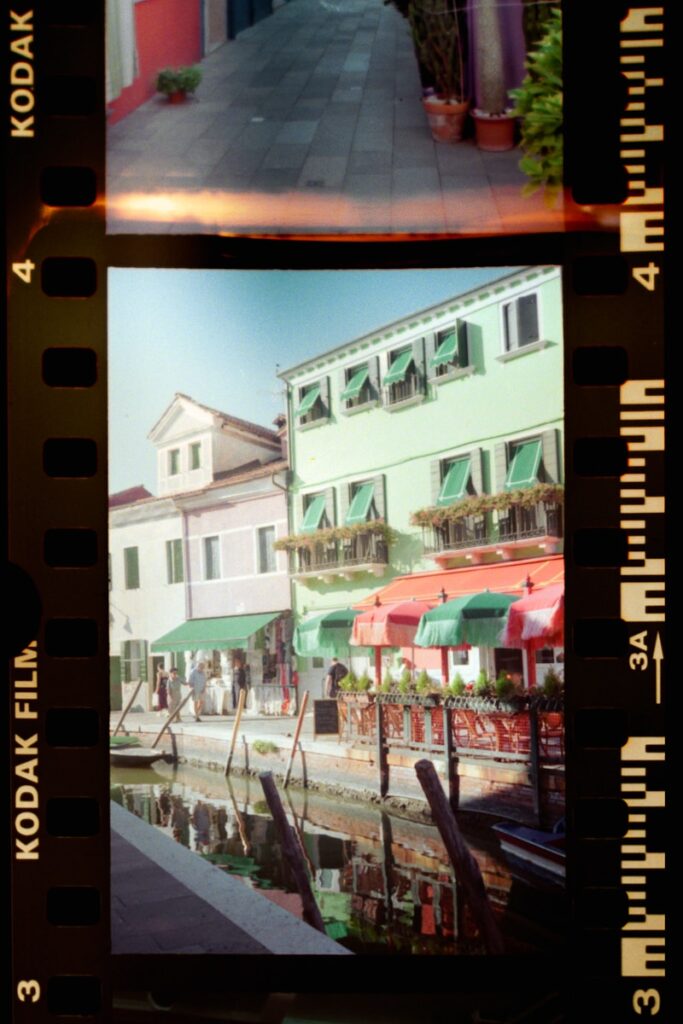
3. **Raw**Prepare yourself, because Julia Ducournau’s “Raw” is not for the faint of heart. This film is more than just a distaff body horror; it’s a visceral, electrifying exploration of potent violence and sexuality that will shock, disgust, and absolutely blow your mind. Yet, what makes it truly exceptional is that these intense elements are anchored by an immersiveness and tantalizing symbolism that elevate the film to an almost mythic status. The horrors presented here are quiet spectacles, delving deeper than mere psychological manipulation.
The story follows Justine, played by Garance Marillier, a vegetarian who is a freshman at a veterinary college. Her world is turned upside down when, through a series of events, she suddenly becomes a carnivore, developing an insatiable hunger for all kinds of flesh. Honestly, with a description like that, do you really need any more convincing? Just be forewarned: this film means business, and yes, there will be blood. Lots of it.
What truly sets “Raw” apart is its skilled filmmaking. The gore isn’t just for gore’s sake; it serves a purpose. The film delves into the internal turmoil of trying to fit into a new, often brutal, environment. It explores the pain of losing something precious, whether it’s one’s innocence or previous identity, and the suffocating feeling of being shackled by other people’s expectations. It’s a coming-of-age story twisted through a darkly fantastic lens, making it both horrifying and incredibly thought-provoking.
This 1-hour and 39-minute cinematic journey into the primal depths of human nature was directed and written by Julia Ducournau, starring Garance Marillier. It’s a challenging watch, but one that rewards those brave enough to confront its unsettling beauty and profound insights into identity and desire.
Read more about: Beyond the Stargazer’s Lens: 8 Cosmic Discoveries That Happened by Pure Chance!
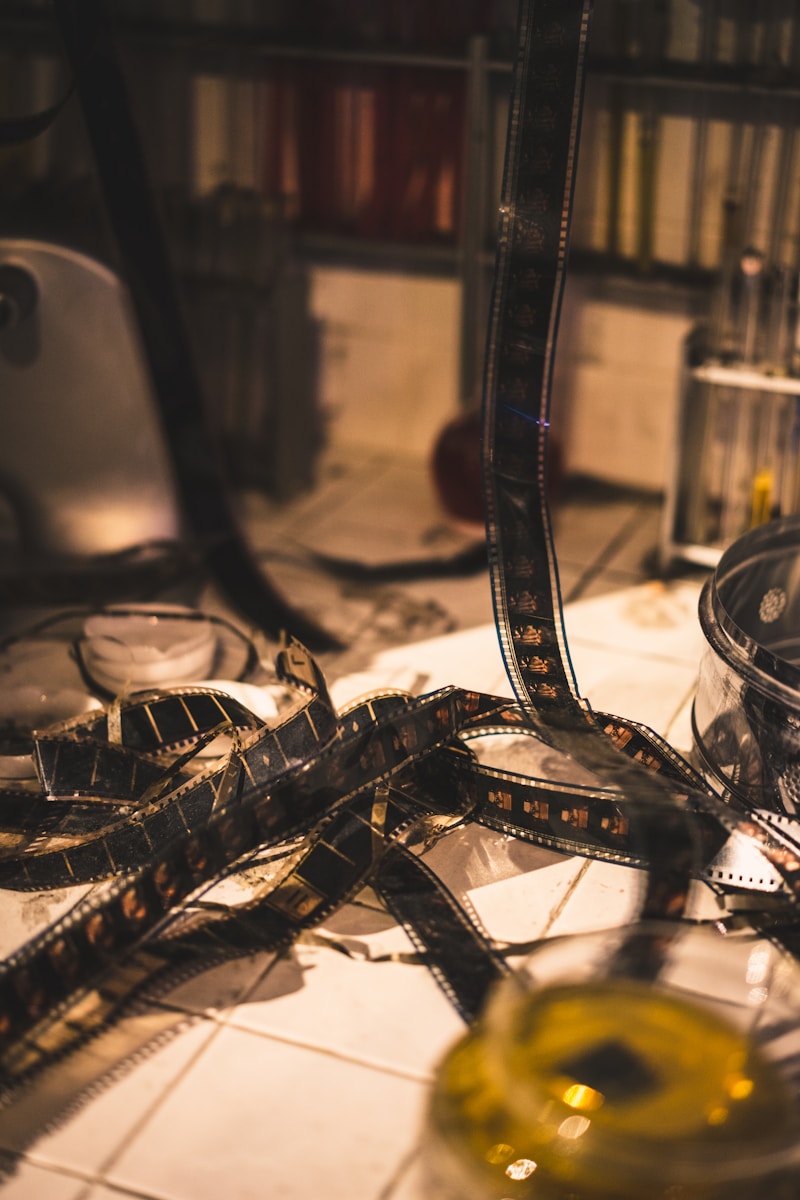
4. **The Host**When you hear the name Bong Joon Ho, you know you’re in for something special, and his film “The Host” is no exception. This cinematic gem is a thrilling blend of genres, expertly crafted to be part horror-thriller and part political satire, all while being 100 percent engrossing from start to finish. At its core, it’s a monster film, but with a clever twist: there’s no easily identifiable, overt monster at first, unlike the B-movies of yesteryear.
Instead, the true villain begins as aldehyde, or HCHO, possibly even a radioactive variant. The movie kicks off in the Yongsan U.S. Army base in Seoul, South Korea, where an American mortician, played by Scott Wilson, casually orders a Korean subordinate to chuck bottles of dirty formaldehyde down the drain. This toxic waste eventually makes its way into the Han River, setting the stage for an ecological nightmare.
The narrative then zeroes in on the Parks, a family whose ordinary lives are about to be drastically altered. There’s Park Hee-Bong, the father, played by Byun Hee-Bong, who runs a small snack shop by the river. His dim-witted son, Kang-Du, portrayed by Song Kang-Ho, struggles alongside his brother Nam-Il, played by Park Hae-Il, who is arguably no better. The family’s shining star is Nam-Joo, a skilled archer played by Bae Doo-Na, who stands as a complete inverse of her genetically unlucky brothers.
Initial tension erupts when a grotesque monster snatches a Park family member from the riverbank during a public gathering. However, the real drama and suspense kick into high gear as the entire family, against all odds and official incompetence, plots their desperate and often comical vengeance. Directed by Joon-ho Bong, who also co-wrote the screenplay with Won-jun Ha and Chul-hyun Baek, this 2-hour film starring Kang-ho Song, Hee-Bong Byun, and Hae-il Park, is a rollercoaster of emotions, mixing genuine scares with biting social commentary.
Read more about: Age-Defying Dads: 14 Celebrities Who Embraced Parenthood In Their 60s And 70s
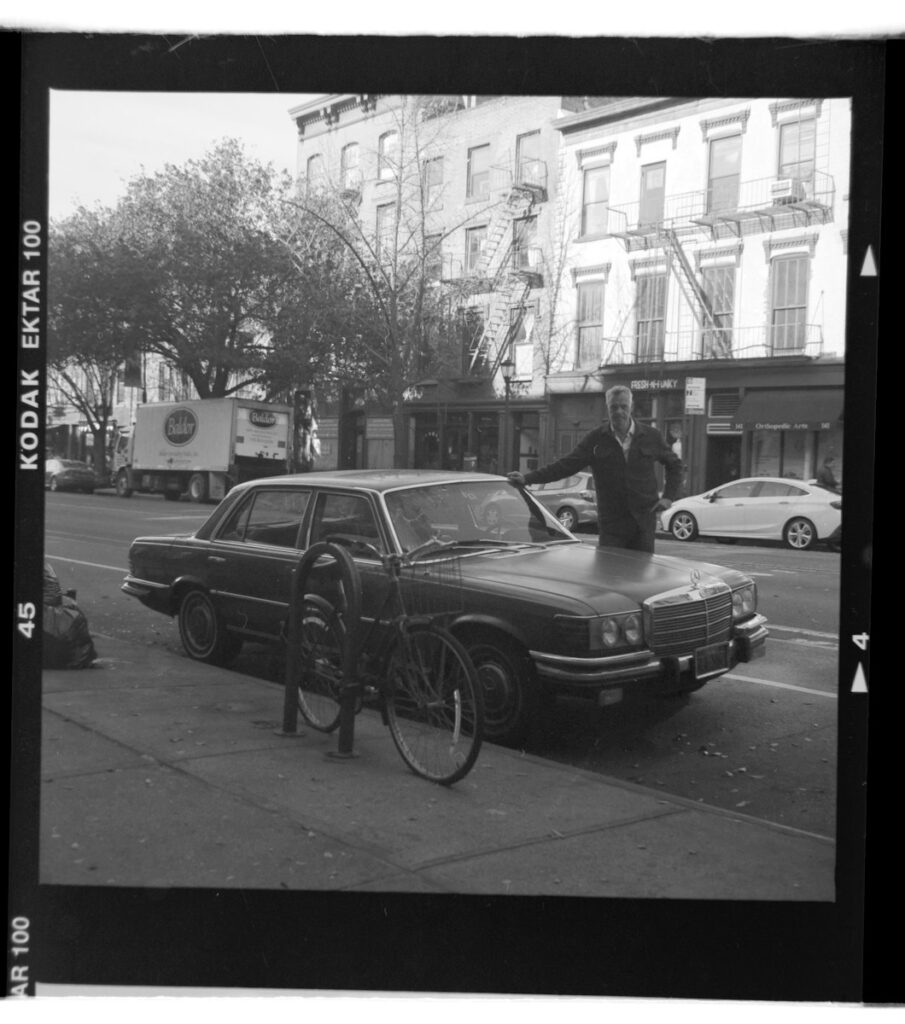
5. **I Am Love**From the moment “I Am Love” begins, you are drawn into a world of opulent beauty and simmering repression. The film opens with Emma, brilliantly portrayed by Tilda Swinton, within the grand Recchi house, as she meticulously prepares for the birthday celebration of the family patriarch. She is his wife, yes, but her demeanor and actions often suggest a role somewhere between a dedicated waitress and an attentive caretaker, hinting at the complex dynamics within this aristocratic Italian family. This initial observation is practically all you need to know to grasp the essence of this film, which intricately weaves a tale about familial bonds and the myriad desires that are relentlessly repressed by obligation, responsibility, and the gilded cage of a magnificent mansion.
For these very reasons, attempting to summarize “I Am Love’s” plot in a few sentences is a challenging endeavor, if not an impossible one. But that’s perfectly fine, because the brilliant filmmaker behind this cinematic masterpiece, Luca Guadagnino, isn’t particularly concerned with plot in the conventional sense. Instead, his focus is firmly on creating a profound sensory experience: mood, feeling, atmosphere, and the raw, unfiltered sensory perceptions that define human existence. He masterfully captures moments like fingers caressing plants, a car gracefully moving upward through a winding mountain road, bees hovering delicately near vibrant flowers, or the exquisite taste of fine shrimp.
Does that make sense? Probably not in a purely logical, narrative way, and that’s precisely the point. “I Am Love” is a film that dares to be experienced, not merely seen. It’s an immersive journey, inviting you to feel every nuance and every unspoken emotion. It stands as both a poignant tale and a vibrant canvas of inexplicable emotions, a beautiful impressionist work where love and lust bubble up to the surface, falter under the weight of expectations, and eventually spill over with unexpected hostility and longing. It’s a true feast for the senses and the soul.
This 2-hour film was directed by Luca Guadagnino, who also contributed to the screenplay alongside Barbara Alberti, Ivan Cotroneo, and Walter Fasano. The stunning cast includes Tilda Swinton, Flavio Parenti, and Edoardo Gabbriellini, delivering performances as rich and complex as the film itself.
Read more about: Beyond the Stargazer’s Lens: 8 Cosmic Discoveries That Happened by Pure Chance!

6. **A Pigeon Sat on a Branch Reflecting on Existence**If only there were an Oscar for Best Title, this film would undoubtedly win it fair and square. “A Pigeon Sat on a Branch Reflecting on Existence,” released in 2015, is a film that lives up to its wonderfully whimsical and philosophical name. It delves into the various ways people pass their time on Earth – the routines, the struggles, the joys, and the sorrows. It’s essentially a look at everything that unfolds on this planet: the waste, the gain, the stagnation, and the relentless march of life.
For this reason, the film isn’t structured as a traditional narrative. Instead, it’s presented as a series of various scenes, small vignettes of varying lengths, all meticulously set in Gothenburg, Sweden. Each scene acts as a standalone observation, collectively building a mosaic of human existence. If this film were to have a tagline, it would probably be a profound, yet understated, “What’s the point?” And indeed, that question is at the very heart of director Roy Andersson’s vision.
Andersson masterfully asks us that very question from the first few scenes, playfully poking fun at the innate, and sometimes perceived, uselessness of many human activities on Earth. At first glance, some of these observations might strike you as funny, even ridiculous, in their stark portrayal of human absurdity. However, as the film progresses, its cumulative effect is deeply moving and thought-provoking.
By the end of this 1-hour and 41-minute film, you’ll find yourself in exactly the same contemplative state as the titular pigeon, reflecting on existence, pondering the meaning of it all. It’s a truly unique cinematic experience, a beautiful and poignant meditation on life’s grand questions, helmed by director and screenwriter Roy Andersson, and starring Holger Andersson, Nils Westblom, and Viktor Gyllenberg.
Read more about: Unveiling the Layers of Legacy: 11 Jaw-Dropping Insights into Toni Morrison’s ‘Beloved’ That Still Resonate

7. **The Square (2013 Documentary)**Before you get ahead of yourself, let’s clarify: this isn’t the excellent 2017 film of the same name. Instead, we’re talking about “The Square,” which came out in 2013, a powerful and essential documentary that offers an unparalleled glimpse into a real-life political revolution. Directed by Jehane Noujaim, it chronicles the momentous 2011 uprising in Tahrir Square in Cairo, Egypt, and delves into its complex, often turbulent, aftermath. It’s a must-watch for anyone wanting to understand the human cost and hope inherent in profound social change.
When most people hear the word “documentary,” they often conjure images of talking heads, nameplates, solemn voiceovers, and heavy use of exposition to explain every detail. However, “The Square” transcends such conventional tropes. It elevates nonfiction filmmaking to both an art form and a medium for deeper, more emotional comprehension. While it is, like any good documentary, heavy on information, it differentiates itself by being incredibly vivid, lyrical, and acutely atmospheric, immersing you directly into the heart of the protests and personal stories.
The film allows viewers to experience the revolution through the eyes of its participants, showcasing the raw energy, unity, and eventual disillusionment of the movement. It doesn’t shy away from the dangers and sacrifices made by ordinary citizens fighting for their freedom and future. This immersive approach makes the events feel immediate and profoundly personal, rather than a detached historical account. The cameras are right there in the midst of the action, capturing authentic moments of hope, despair, and defiance.
However aesthetically pleasing and emotionally engaging it is, at the end of the day, “The Square” remains a sobering account of a country vastly at odds with its own people. It’s a stark illustration of a government limiting freedoms that should be accessible to all, and the relentless struggle of those who refuse to accept such limitations. This 1-hour and 48-minute film, starring Ahmed Hassan, Khalid Abdalla, and Magdy Ashour, is a crucial historical document and a testament to the power of collective action and the enduring spirit of resistance.
Alright, cinephiles and casual streamers alike, let’s keep this global cinematic adventure going! We’ve already explored some truly unique and thought-provoking stories, and trust us, the world of foreign-language cinema continues to offer a goldmine of compelling narratives. From fantastical journeys to profound reflections on existence, these next eight films are absolutely worth streaming, promising to sharpen your viewing habits and open you up to even broader spectrums of world culture. Get those subtitles ready, because we’re diving back in!

8. **Pan’s Labyrinth**”Pan’s Labyrinth,” made in 2006 by the brilliant Oscar-winning director Guillermo del Toro, can still easily give most films made today a run for their money. This film is what you get when you dip Alice In Wonderland in a tar pit, pour grease all over it, and sprinkle it with dark magic. It’s a visually dazzling fairy tale set in Franco-era Spain, making it a deeply political film illustrating the boundaries and tolls of totalitarianism. Del Toro’s ingenious brand of Gothic fantasy is embedded in its DNA.
The year is 1944. Fascists have emerged victorious from the brutal civil war in Spain. We meet Ofelia (Ivana Baquero), who’s traveling with her mother, Carmen, to live with her new stepfather, Vidal, a Nationalist army captain. Ofelia finally arrives at her new home, and there she realizes Vidal doesn’t care for her one bit, only the son her mother is carrying, setting the stage for her incredible journey.
Like all great tales, “Pan’s Labyrinth” explores many things: coming of age, womanhood, and a journey of overcoming evil. The level of filmmaking here is staggering, as is its visual palette. At its core, this is a powerful story of survival and imagination, reminding us that even in the darkest times, the human spirit can find a way to transcend.
Read more about: Beyond the Screen: 13 Visually Stunning Films Every Artistic Movie Lover Needs to See Right Now
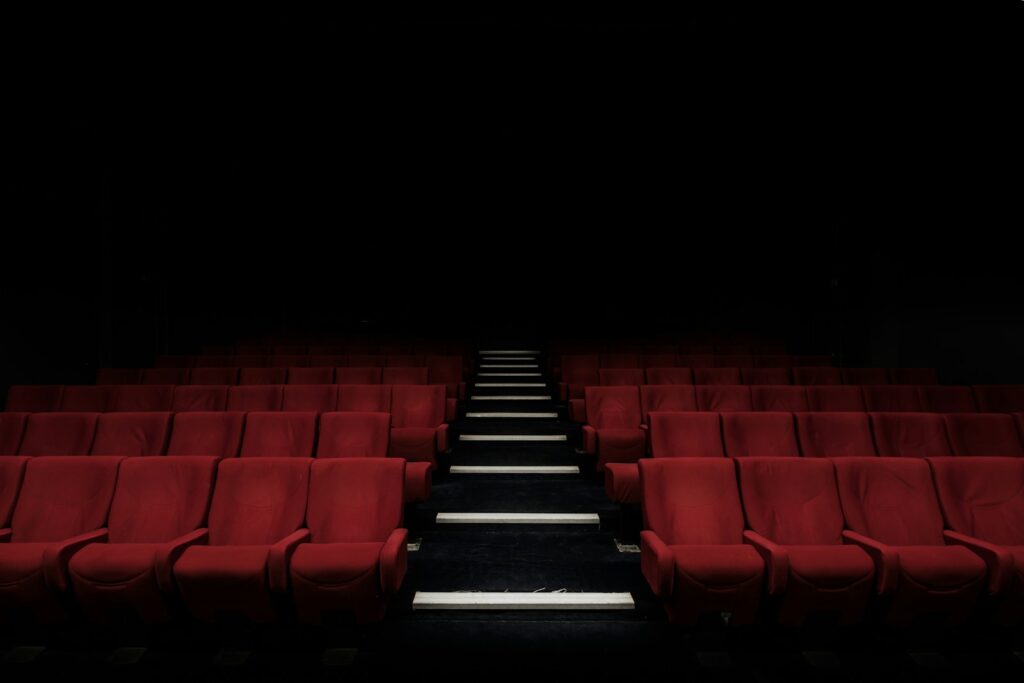
9. **Incendies**Before he made “Arrival” and “Blade Runner 2049,” the exemplary director Denis Villeneuve crafted “Incendies,” a powerful foreign film adapted from Wajdi Mouawad’s 2003 play “Scorched.” Middle East turmoil serves as the perfect template for a Greek tragedy, or perhaps it’s the other way around. In any case, “Incendies” tells the mysterious life of Nawal Marwan, a refugee who escaped an unidentified Middle East country to Québec, presenting a complex and emotional narrative.
We meet Nawal when she’s dead: In her last will and testament, she asks her adult children to deliver two sealed envelopes to a father and a brother they hadn’t known until now. This extraordinary request sends them on a profound and challenging quest to uncover their mother’s hidden past and unravel long-buried family secrets.
“Incendies” masterfully dips in and out of flashbacks to show Nawal’s brush-up with Middle East conflict. It’s a deft look at trauma and the cost of atrocities, amazingly pulling that sentimentality without resorting to showing violence mindlessly. This makes it a deeply impactful film, demonstrating the quiet yet devastating echoes of historical upheaval.
Read more about: 15 Twisty Mystery Movies That Will Keep You Hooked

10. **The Diving Bell and the Butterfly**This film vividly brings to the screen the real-life story of Jean-Dominique Bauby, an editor for the French version of Elle. He woke up one day from a stroke-induced coma to find himself wrought with locked-in syndrome, a rare affliction that leaves the mind aware but the body completely paralyzed. The only movement Jean-Dominique could make was flickering his left eyelid up and down.
With the help of a highly advanced alphabet system, Jean-Dominique was able to write a whole memoir, released in 1997. Ten years later, this celebrated film by Julian Schnabel arrived, which at its core is about finding happiness in spite of inexplicable tragedy. It’s a profound testament to the power of human will and adaptation, even in the most dire circumstances.
Schnabel did something most filmmakers wouldn’t even dare of doing: have the first 40 minutes be from Jean-Dominique’s point of view, blurred, vague, and terrified. With that, he elevated the film from mere pity-throwing pseudo-sympathetic garbage into a visceral, tender portrait of empathy, letting us have an idea of what it must be like to be in the protagonist’s shoes. It’s an immersive and truly unforgettable experience.
Read more about: Unlocking Culinary Gold: 15 Must-Try Dishes That Define Philadelphia’s Best Restaurants and Truly Beat the Regular Menu

11. **Departures**”Departures” follows Daigo, played by Masahiro Motoki, a cello player for a struggling orchestra who finds himself neck-deep in debt. When his company folds, Daigo returns to the quaint rural community where his late mother ran a café and begins seeking new work. This search leads him down a path he never anticipated, full of unexpected revelations.
He sees an ad for what he thinks is a travel company — an easy mistake, seeing as it’s called “Departures.” However, this leads him to fumble his way onto a new, unusual job: helping prepare the dead for funeral rites. It’s a profession most people would shy away from, yet it holds a surprising depth.
Daigo’s initial apprehension is no surprise, as a person would feel discomfort and perhaps even tiny panic on any new job, even more so anything involving the dead. His shrewd boss, Tsutomu Yamazaki, eventually shows him the ropes, and by extension, how such a seemingly macabre job can bring peace to both the living and the dead. It’s a truly moving exploration of life, loss, and dignity.
Read more about: Beyond the Popcorn: 14 Infamous Movies That Sent Audiences Running for the Exits

12. **Cemetery of Splendor**If you’ve never seen a film by Apichatpong Weerasethakul, you might find “Cemetery of Splendor” a bit weird for your taste. But that’s exactly the point of discovery: trying out what you won’t necessarily try uncoaxed. Like any Weerasethakul picture, the story is loose, vague, and like a vein, hard to see on first glimpse alone. But, indeed, just like a vein, it’s integrated underneath, pulsating with life, power, and energy.
From the opening frame to the last, each moment of “Cemetery of Splendor” is packed with so much visual information that it’ll likely take you multiple viewings to get a sense of what it is about, exactly. Or you can just forget all that and surrender to its beautiful hypnotism. It is serene, sensual, and highly surreal, offering an experience that transcends conventional narrative.
Here’s the intriguing setup: a school is temporarily transformed into a military hospital. Inside, a crew of veterans are at odds with an inexplicably incurable sleeping disorder. Outside, machines claw underneath in search of a “cemetery of kings,” a mythic graveyard buried beneath the schoolyard possibly holding the cure. This is as weird as it gets, but in the best, most thought-provoking way.
Read more about: Phil Mickelson’s Elite Fleet: A Deep Dive into the Golf Champion’s Rare Cars, Private Jet, and Lavish Lifestyle

13. **Phoenix**”Phoenix,” which takes place in a post-World War II Berlin, deals profoundly with loss, identity, and a quest for answers and meaning, even if they come in a scattershot manner. It’s a compelling narrative that beautifully captures the fractured reality of a city and its people rebuilding after devastation.
We follow a Jewish singer named Nelly, played by Nina Hoss, who’d been shot in the face before her Auschwitz rescue, as she returns to the bombed-out German capital to undergo reconstructive surgery. After the procedure, with scars still fresh on her face, she goes on a quest to find her husband, Ronald Zehrfeld, to seek the truth: Did he rat her out to the Gestapo?
Soon after, Nelly locates Johnny in a bar called Phoenix. But, of course, he doesn’t recognize her — or her new face. This premise sets up a captivating psychological drama, forcing Nelly to navigate her deepest fears while trying to uncover a potentially devastating betrayal. It’s a masterclass in tension and emotional depth.
Read more about: The Ultimate Reality Check: 15 Overrated Blockbusters That Made an Absolute Fortune
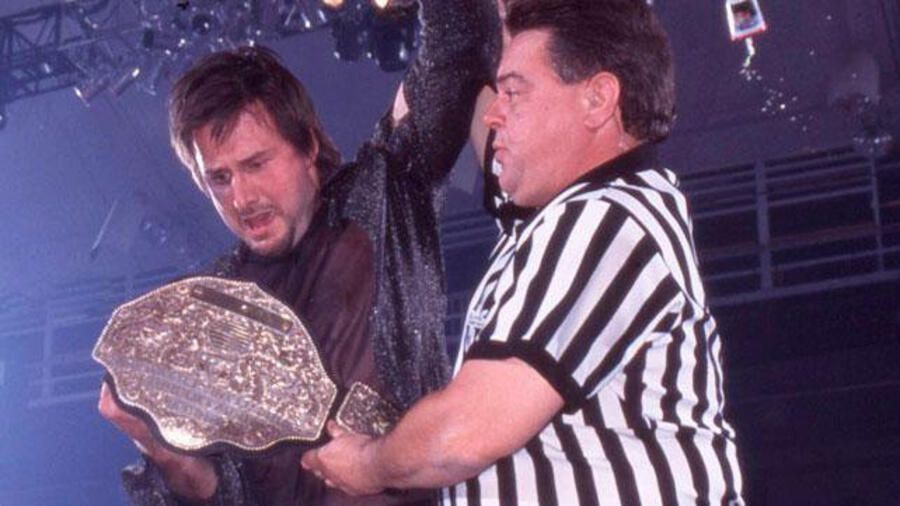
14. **Ravenous**Even if it’s about zombies, “Ravenous” is a relatively calmly somber film — and that’s a good thing. Whereas other flicks about this flesh-eating menace capitalize on gore first and foremost, this film explores other tricks to elevate the already crowded genre, focusing on unique atmosphere and character journeys.
The film follows various disparate characters who eventually meet-cute by the second act, led by sci-fi nerd and zombie slayer Bonin, played by Marc-Andre Grondin. Set in the lush countryside of Quebec, we follow the group as they attempt to escape a deadly zombie invasion, confronting both external threats and internal dilemmas.
“Ravenous” isn’t completely devoid of zombie tropes. There’s hacking and slashing here, plus copious amounts of blood and gore. However, instead of converting horror into adrenaline, “Ravenous” makes something more contemplative, more level-headed out of it. The result is a zombie film that’s still brutal but flavored with wry humor and surreal setpieces that don’t rely solely on violence to be effective. It’s a refreshing take on a classic genre.
Read more about: The Ultimate Air Intake: 11 Classic Cars That Flaunted the Hood Scoop Look
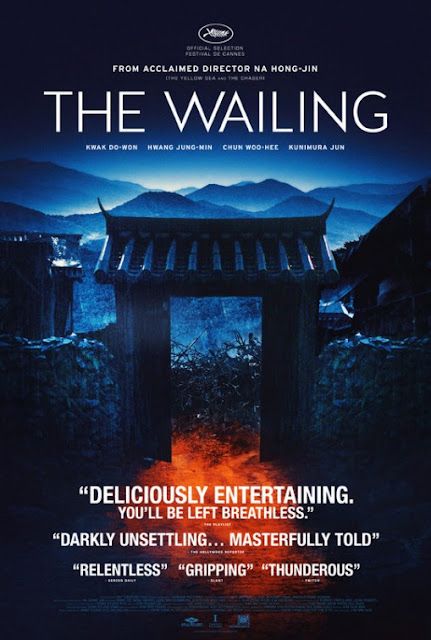
15. **The Wailing**Koreans just know how to make awesome horror films, don’t they? “The Wailing” is yet another addition to South Korea’s stellar roster of slow-burn horror-dramas. It’s a delicious and scary story that unravels slowly but surely over two-and-a-half hours. That’s highly unusual; most films can do it in just an hour and a half. But “The Wailing” is special in that it’s a horror film cling-wrapped in an epic treatment.
The film follows Jong-Goo, played by Kwak Do-won, a potbellied cop in a town so calm and safe Jong-Goo barely has any reason of being a cop. However, a wave of brutal murders disrupts the town’s quiet, and that’s when Jong-Goo realizes dark forces are behind the new violence, pulling him into a truly terrifying investigation.
“The Wailing” is crammed with so many things that on paper it really shouldn’t work. It masterfully blends supernatural horror, crime thriller elements, and deep-seated folk beliefs into a cohesive, terrifying narrative. But it does, and you better not miss it. Prepare for a film that will keep you on the edge of your seat and questioning everything until its final, haunting moments.
Read more about: From Zero to Hero (on Screen): The Iconic Cars That Were Only Cool Because of the Movies They Were In
And there you have it, fellow film enthusiasts! Fifteen incredible foreign-language films that absolutely demand a spot on your watch list. From the darkly comedic absurdities of “The Lobster” to the profound, unsettling terror of “The Wailing,” these cinematic gems prove that compelling stories and unique cultural perspectives are thriving across the globe. Each one offers a fresh lens through which to view the human experience, challenging perceptions, stirring emotions, and ultimately, enriching your life in ways that mainstream Hollywood often can’t. So go ahead, cue up those subtitles, and let these global narratives transport you. Your inner film buff – and perhaps your next conversation at a party – will thank you for it!


